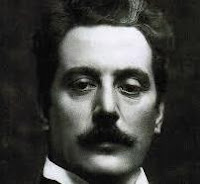From composers to conductors and celebrated chanteurs, to musicians and musically gifted veterans of war, this inspirational edition presents to the reader a cornucopia of malady and misery, ultimately triumphed by an indomitable sense of passion and an optimistic perspective.
Without further ado, Unraveling Musical Myths presents some of Western Classical Music’s most gifted and perseverant masters of the musical arts:
THE UNSEEN BEAUTY IN BLINDNESS:
We all know Beethoven first began to experience the symptoms auditory paracusia whilst still in his productive years – a pre-cursor to a total loss of hearing which left the composer entirely deaf by the time he expired in late March of 1827.
What few remember is that two more famous composers of iconic stature – both Johann Sebastian Bach and George Frederick Händel – both fell victim to total sensory deprivation – in the form of blindness. In fact, Bach would tragically lose his eyesight – and his life - shortly after the master of the baroque attempted to remedy his failing vision by allowing the Quack “eye surgeon” (the Chevalier John Taylor) to operate on him – twice. Taylor's questionable methods left Bach completely blind after the first “surgery.” Four months after the second ‘operation’ the composer was dead – the victim of a stroke - allegedly directly caused by the botched operation and complications experienced during a very much delayed period of healing. Shockingly, Taylor would perform the exact same procedure in 1791 on Handel…who he also blinded.
Bach and Handel aren’t the only famous icons of classical music to have been stricken with blindness. One of the modern era’s most famous musical figures to share the same affliction is a household name – even in homes whose inhabitants may be unfamiliar with the musical genre.
 |
| Crossover tenor Andrea Bocelli is slated to perform at the 2017 Presidential Inauguration of President-Elect Donald Trump alongside former television vocal contest participant- turned-recording artist Jackie Evancho. UPDATE: As of December 19 2016, New York Post's Page Six is reporting Bocelli to have "pulled out" from the Inauguration due to "backlash." [Article] |
She refused.
Bocelli, who would grow up to become one of classical music’s most popular crossover artists of all time – and who was born with congenital glaucoma, leading to eventual blindness in 1970 (after he was hit in the head by a football) – famously thanked his mother during a live television performance in 2010, professing both her bravery and optimism before a crowd of his adoring fans - telling the audience:
"The doctors had to apply some ice on her stomach and when the treatments ended the doctors suggested that she abort her child.
They told her it was the best solution because the baby would be born with some disability..but the young brave wife decided not to abort, and the child was born.
That woman was my mother, and I was the child… maybe I'm partisan, but I can say that it was the right choice and I hope that this could encourage many mothers who sometimes might find themselves in difficult situations but want to save the life of their baby."
Then there is the case of the famous blind pianist who conquered 18th century musical Europe – and perhaps even the heart of a little known composer by the name of Wolfgang Amadeus Mozart.
 |
| Maria Theresia von Paradis |
After briefly meeting – and performing with – Herr Mozart at the premiere of the then-12 year old’s opera Bastien and Bastienne – held at the home of the noted (and sometimes reviled, depending on which 18th century notable you would have asked) physician Dr. Franz Anton Mesmer (who had developed a close relationship with the child Paradis, then only 14), a lasting friendship between the two pubescent musical wunderkinds had officially been struck.
Mesmer, who sought a hefty payday by introducing the talented young pianist to Mozart and who then attempted to “cure” Paradis of the affliction of blindness which he felt was “psychosomatic” in nature – or “dictated by the unconscious” as he called it - would be instrumental in launching the girls' meteoric rise to fame.
There remains some debate about the etiology – perhaps even the legitimacy – of young Maria Theresia’s blindness. Paradis herself would add to the rumor mill with a rather ominous portent of her own, when she claimed to experience flashbacks of some suffocating force when required to reminisce upon on the onset of her loss of eyesight.
In any event, Paradis’ blindness – alleged or real – did not deter the young virtuoso. Mozart remained an ardent admirer of the young pianist, composing a concerto for piano, pianoforte and orchestra – allegedly for Maria Theresia – in 1784, which he titled Piano Concerto No. 18 in B-flat major, KV. 456. Listen to a performance of the concerto below, performed by the reverent Murray Perahia:
POLIO MEETS AN UNSTOPPABLE FORCE IN VIOLINIST ITZHAK PERLMAN
Israeli virtuosic sensation Itzhak Perlman – the modern era’s pre-eminent master of the violin, was destined for musical infamy – in spite of all odds that threatened to stack themselves against him...





























